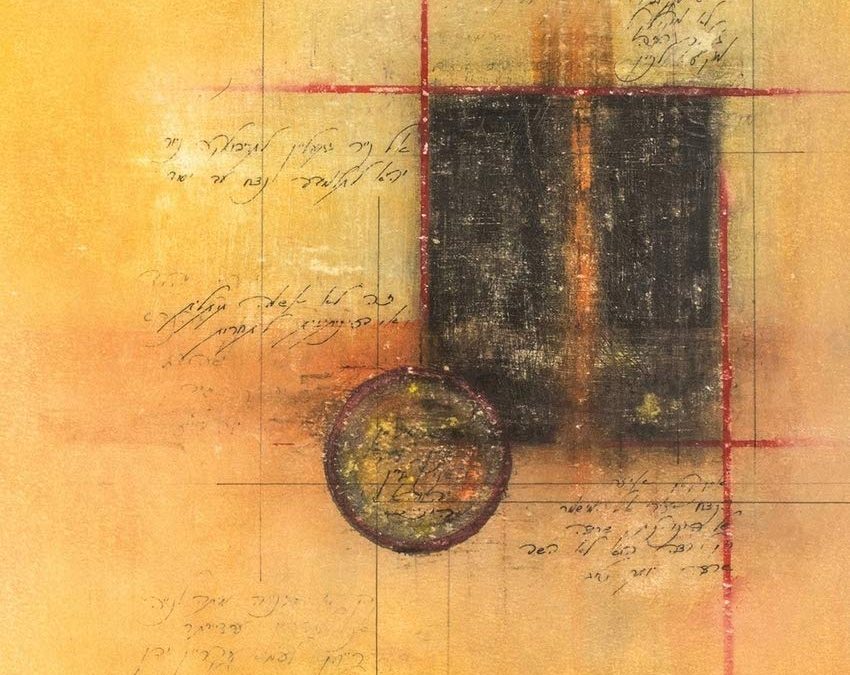The book of Genesis begins like this:
(1) In the beginning God created the heaven, and the earth.
(2) And the earth was without form, and void; and darkness was upon the face of the deep. And the spirit of God moved upon the face of the waters.
(3) And God said, Let there be light: and there was light.
(4) And God saw the light, that it was good; and God divided the light from the darkness.
(5) And God called the light Day, and the darkness he called Night. And the evening and the morning were the first day.
(6) And God said, Let there be a firmament in the midst of the waters, and let it divide the waters from the waters.
(7) And God made the firmament, and divided the waters which were under the firmament from the waters which were above the firmament: and it was so.
(8) And God called the firmament Heaven. And the evening and the morning were the second day.
(9) And God said, Let the waters under the heaven be gathered together unto one place, and let the dry land appear: and it was so.
(10) And God called the dry land Earth; and the gathering together of the waters called he Seas: and God saw that it was good.
(11) And God said, Let the earth bring forth grass, the herb yielding seed, and the fruit tree yielding fruit after his kind, whose seed is in itself upon the earth: and it was so.
(12) And the earth brought forth grass, and herb yielding seed after his kind, and the tree yielding fruit, whose seed was in itself, after his kind: and God saw that it was good.
(13) And the evening and the morning were the third day.
(14) And God said, Let there be lights in the firmament of the heaven to divide the day from the night; and let them be for signs, and for seasons, and for days, and years:
(15) And let them be for lights in the firmament of the heaven to give light upon the earth: and it was so.
(16) And God made two great lights; the greater light to rule the day, and the lesser light to rule the night: he made the stars also.
(17) And God set them in the firmament of the heaven to give light upon the earth.
(18) And to rule over the day and over the night, and to divide the light from the darkness: and God saw that it was good.
(19) And the evening and the morning were the fourth day.
(20) And God said, Let the waters bring forth abundantly the moving creature that hath life, and fowl that may fly above the earth in the open firmament of heaven.
(21) And God created great whales, and every living creature that moveth which the waters brought forth abundantly, after their kind, and every winged fowl after his kind: and God saw that it was good.
(22) And God blessed them, saying, Be fruitful, and multiply, and fill the waters in the seas, and let fowl multiply in the earth.
(23) And the evening and the morning were the fifth day.
(24) And God said, Let the earth bring forth the living creature after his kind, cattle, and creeping thing, and beast of the earth after his kind: and it was so.
(25) And God made the beast of the earth after his kind and cattle after their kind, and every thing that creepeth upon the earth after his kind: and God saw that it was good.”
(Genesis, 1:1–25)
The light of the first day is different from the light emitted by the luminaries created on the fourth day. If we pay attention to the text, we will see that God does not create or produce light but only says: “Let there be light,” and there was light. During the process of creation, on the other hand, God performs different actions: He divided the light from the darkness; He divided the waters from the waters; He created great whales and every living creature, and so on. However, God did not perform any action related to the first light; rather, it appeared after a divine expression that reflected His desire.
According to Rabbi Sa’adiah ben Joseph Gaon, verse 3 refers to the light of divine glory, and the fact that God said indicates that God wanted. When God desires light, He does not need to make it, but just to mention it.
In verse 2, it is said, “And the earth was without form, and void; and darkness was upon the face of the deep…” The darkness is only upon the face, on the outside. The light lies in the depths of the interior. It is not necessary to create it, but only to aspire to it, and it will become manifested.
God creates. However, He did not make the light of the first day: He only mentioned it. If the light were a divine creation, it would be impossible for us to create it, because human beings can only destroy, compose, and arrange, but not create. In verse 3, the Bible bestows on us the power to aspire to clarity. It tells us that when we long for light, it will manifest from the depths of darkness. Although we lack the ability to create from nothing, we can desire light and illuminate the darkness.
King David says:
עוּרָה כְבוֹדִי עוּרָה הַנֵּבֶל וְכִנּוֹר אָעִירָה שָּׁחַר.
(תהלים נ”ז, ט’)
Awake, O my soul! Awake, O harp and lyre! I will wake the dawn.
(Psalms, 57:8)
Basing on this verse, Rabbi Joseph Karo opens the Shulchan Aruch as follows:
.יתגבר כארי לעמוד בבוקר לעבודת בוראו, שיהא הוא מעורר השחר.
(שולחן ערוך,אורח חיים, סעיף א’)
Let one be strong like a lion to get up in the morning for the sake of serving his creator, to wake, or illuminate, the dawn.
(Shulchan Aruch, Orach Haim, verse 1)
The Shulchan Aruch begins like the Torah: rising in the morning to continue the very work of the creator, to wake up or illuminate the dawn, which means to illuminate the morning. That is, human beings can awaken the dawn, and if they want light… there will be light! Later on, Rabbi Joseph Karo offers instructions for how to perform this divine work: by keeping God in front of oneself… always.
שויתי ה’ לנגדי תמיד.
(תהילים טז’, ח’)
I have set the Lord before me constantly.
(Psalms, 16:8)
If you really aspire to clarity, you have only to desire it. You just need to follow your soul’s thirst for the light.
When Jesus spoke again to the people, he said, “I am the light of the world. Whoever follows me will never walk in darkness, but will have the light of life.”
(New Testament, John 8:12)







